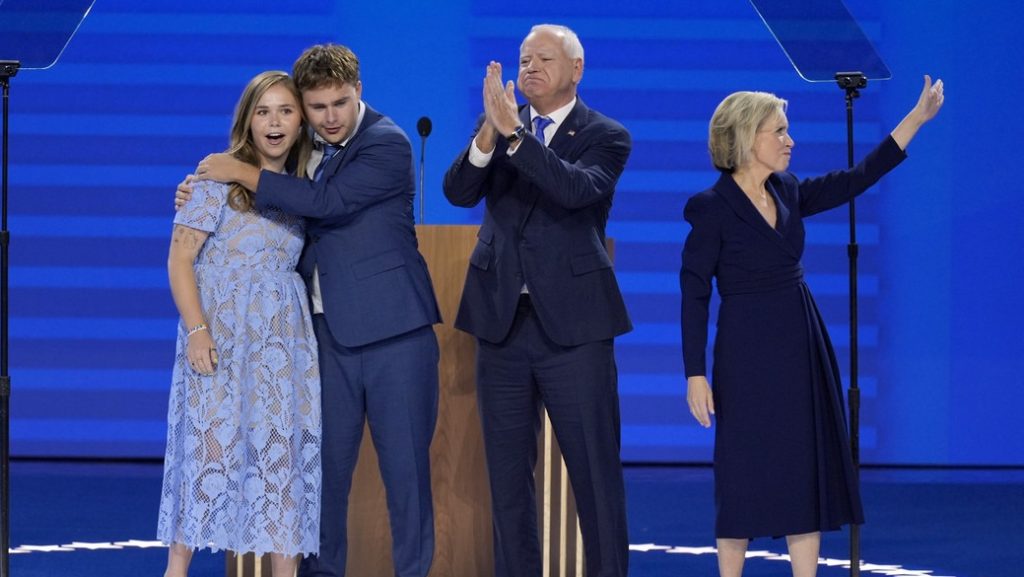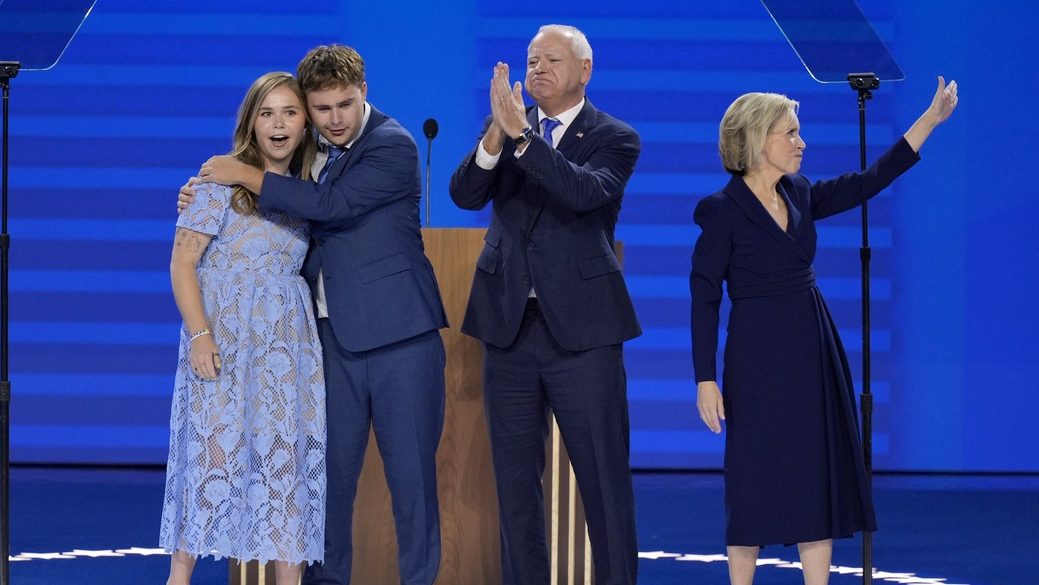In a turn of events that quickly captured the public’s attention, Ann Coulter’s recent remarks about Tim Walz’s 17-year-old son, Gus, have ignited a social media firestorm. The incident, which unfolded on X (formerly Twitter), has sparked widespread backlash and debate over Coulter’s controversial comment.

A Proud Moment Turns Sour
The controversy began on a high note. During Governor Tim Walz’s acceptance speech for the vice presidential nomination, a poignant moment was captured: his son Gus, visibly moved and weeping with pride, as his father spoke. This emotional display was widely celebrated as a touching and relatable family moment, epitomizing the personal side of political life.
However, the sentiment quickly soured when conservative commentator Ann Coulter took to X to share her thoughts on the scene. She posted an article with a lead photo of Gus in tears, captioned with a dismissive “Talk about weird…” This seemingly innocuous comment, intended to critique the emotional display, was met with immediate and intense backlash.
Swift and Sharp Online Reactions
The reaction to Coulter’s post was swift and severe. Many users took to social media to express their disapproval, viewing Coulter’s remarks as callous and insensitive. Tommy Vietor, a former Obama staffer and liberal podcaster, responded with a pointed critique: “I can see why a child loving their parents would feel foreign to you.”
Critics quickly pointed out the insensitivity of Coulter’s comment, particularly in light of Gus Walz’s personal struggles. According to a recent interview with People magazine, Gus has been diagnosed with a nonverbal learning disorder, ADHD, and an anxiety disorder. The public’s reaction was notably fueled by this context, as many felt that Coulter’s jab was especially harsh given these challenges.
Shannon Watts, founder of Moms Demand Action and Everytown, added her voice to the conversation, sharing her own experiences with neurodivergence. “I am neurodivergent. When I was 14, I was diagnosed with ADHD, OCD, and several learning disorders, including dyscalculia,” Watts wrote. “We’re not weird, we’re wonderful. And we’re your family, friends, and fellow Americans.” Her response underscored a broader message of empathy and understanding, challenging the notion that such personal struggles should be mocked or ridiculed.
The Fallout and Coulter’s Response
As the backlash grew, Ann Coulter’s post quickly became a trending topic on X, with many users rallying around Gus Walz and expressing solidarity with him. The term “He’s 17” also trended, serving as a reminder of Gus’s age and the inappropriateness of Coulter’s critique.
In response to the mounting pressure, Coulter eventually deleted her original post. However, the damage was done, and the online discourse surrounding the incident continued to evolve. The deletion of her post did little to quell the ongoing criticism, which highlighted a broader discussion about the intersection of public figures, social media, and personal vulnerabilities.
Broader Implications
The controversy surrounding Ann Coulter’s comments on Gus Walz raises significant questions about the nature of online discourse and the responsibility of public figures. The incident reflects a growing sensitivity to issues of mental health and neurodivergence, emphasizing the need for greater empathy and respect in public conversations.
In Malaysia, as in many other parts of the world, discussions about mental health and personal challenges are increasingly prominent. This incident serves as a reminder of the importance of addressing such topics with care and compassion, particularly in the realm of social media where public reactions can be both rapid and intense.
Conclusion
The backlash against Ann Coulter’s comment on Gus Walz highlights the complex dynamics of modern social media and public discourse. As the debate continues, it underscores the need for a more empathetic and nuanced approach to discussing personal and sensitive issues in the public sphere.


